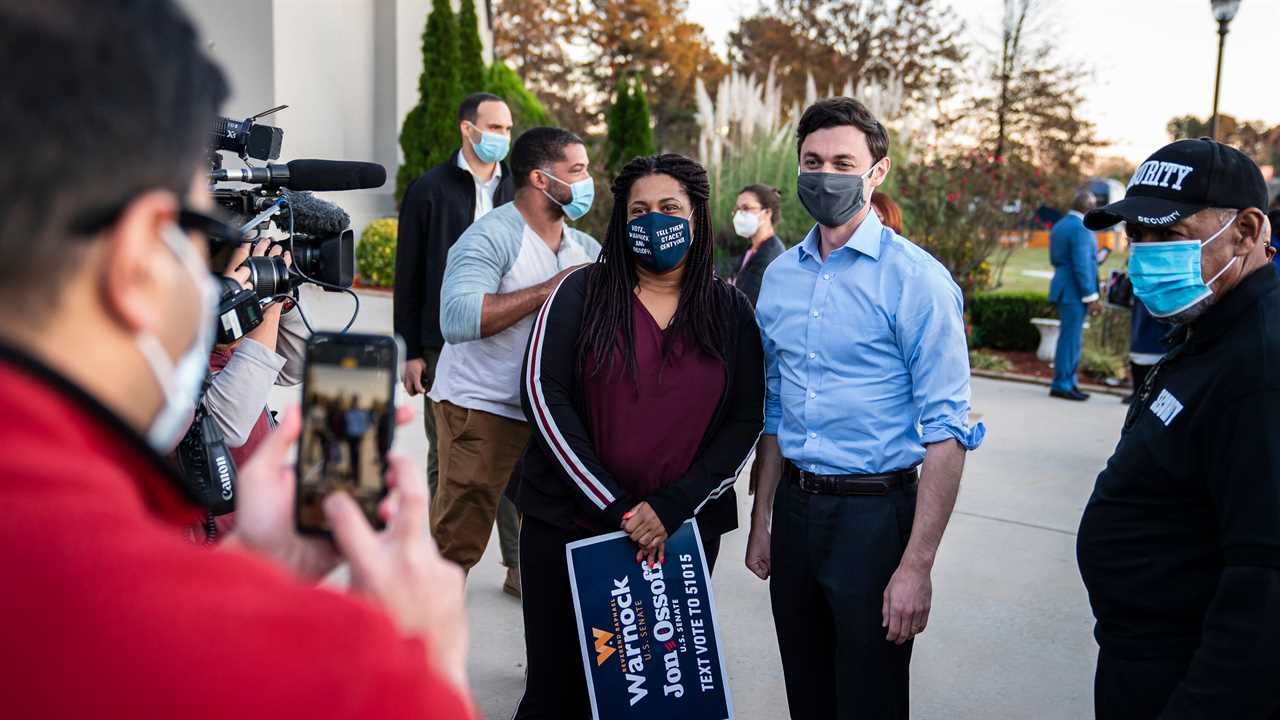
With just weeks until the two Georgia runoff elections that will determine the balance of the Senate, progressive groups are pouring resources into the state — on behalf of two candidates who do not share their most ambitious policy goals.
Though the candidates, Jon Ossoff and the Rev. Raphael Warnock, have not endorsed the Green New Deal, the Sunrise Movement, the activist climate group that champions the sweeping climate change plan, is aiming to help register 10,000 to 20,000 Georgians who will turn 18 by Jan. 5, the day of the elections. The Progressive Change Campaign Committee has already raised $386,000 for the two Democratic candidates. MoveOn, a progressive group, hopes to mobilize many of its 250,000 members in Georgia, and more nationwide, to canvass and phone bank in the state.
The furious efforts reflect the urgency that is consuming the Democratic Party’s left flank. Two victories in Georgia would produce a 50-50 tie in the Senate, giving Democrats control of the chamber because Kamala Harris would cast tiebreaking votes as vice president.
“We are moving heaven and earth and pointing all of our resources as much as we can to help us win those two seats in Georgia,” said Jamaal Bowman, a New York Democrat who will join the House in the next term.
Mr. Bowman said he spoke recently with Stacey Abrams, who narrowly lost the Georgia governor’s race in 2018 and is widely credited with voter turnout initiatives that helped flip Georgia blue this year, to see how he could support her efforts. And he said that he and other progressives in the House — including those known as the squad, a now-growing group that began with four congresswomen of color — were strategizing about how to help in Georgia.
But progressives also understand that for decades Georgia has been a Republican stronghold with a large number of conservative voters, and that their efforts there need to be modulated. President-elect Joseph R. Biden Jr. won the state, many Democrats point out, with a moderate agenda that tempered the rhetoric and policy goals of the left.
Amid deepening ideological fault lines among Democrats over messaging and electoral strategy — divisions that have burst into the open as the party takes stock of its painful losses down the ballot — the two Senate runoff elections will also be a test case for whether progressives can balance their broad calls for change with the realities of campaigning in a once reliably Republican state.






